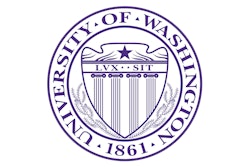A student-athlete's harassment case flounders when she fails to prove administrators ignored her complaints.
By necessity, coaches and athletes spend a lot of time together. As a result of this close relationship, it is not always easy for athletics administrators to know when coaches cross the line and their behavior becomes abusive or harassing. In order to protect administrators - who have a legal duty to protect athletes from sexual and physical abuse at the hands of their coaches - from an endless string of lawsuits, the courts require that they have actual notice of misconduct. Should they fail to take adequate precautions in light of the information they possess, administrators can be found to have shown "deliberate indifference."
In 2002, Eleanor Pitts was the head women's basketball coach at Lawson State Community College in Alabama. As coach, one of her duties was the supervision of all assistant coaches and voluntary assistants. One of the voluntary coaches was Boris McCord, whom Pitts had known for several years - enough to know that he had been convicted (in Georgia) of manslaughter and spent time in jail. In 2003, Pitts became athletic director and Aubrey Wiley replaced Pitts as head basketball coach. Wiley in turn hired McCord as the assistant coach.
One of the first players McCord recruited to Lawson State was J.B., an athlete he coached in high school. While at Lawson State, McCord regularly chauffeured J.B. to and from classes. J.B. also spent time with McCord at his home. While Pitts and Wiley were both aware of these activities, and felt some concern regarding the amount of time J.B. and McCord were spending together, when they discussed the relationship with the coach and the player, both denied it was of a sexual nature. In fact, J.B. did not complain to anyone at Lawson State about her relationship with McCord. On the contrary J.B. had come to regard McCord as a friend and father figure, and never felt that he had acted inappropriately toward her.
Things changed, however, one night while the basketball team was on the road. Claiming that she was raped by McCord, J.B. sued Lawson State under Title IX of the Education Amendments of 1972, as well as McCord's supervisors (Pitts and Wiley) pursuant to 42 U.S.C. § 1983. J.B. argued that Lawson State and the supervisors had knowledge of the sexual or hostile environment created by McCord, and that their failure to respond (and/or their inadequate response) amounted to deliberate indifference.
The defendants filed a motion for summary judgment, asserting, among other things, qualified immunity. The trial court granted the motion, and J.B. appealed to the Supreme Court of Alabama. In reviewing J.B. v. Lawson State Community College et al. [2009 Ala. LEXIS 158], the court ruled that in order to establish a case against the supervisors, J.B. must show a history of widespread abuse that suggested to the responsible supervisor that there was a need to correct the alleged deprivation, and that he or she failed to do so. In addition, the court held that the deprivations must be obvious, flagrant, rampant and of continued duration, rather than isolated occurrences.
J.B. argued that Pitts was deliberately indifferent to the risk of harm presented by allowing McCord to coach young college girls. In particular, she contended that Pitts failed to conduct any investigation into a previous incident involving McCord and the inappropriate touching of another student. In addition, J.B. argued that Pitts failed to conduct an investigation into the longstanding inappropriate relationship between J.B. and McCord, of which Pitts was aware.
In reviewing (and ultimately dismissing) J.B.'s first argument, the court noted the odd disconnect in the testimony surrounding McCord's earlier inappropriate touching of another student. The student involved in the incident, S.P., testified that the touching occurred during the 2003-04 season, not during the 2002-03 season, as Pitts remembered. In addition, the court placed significance on S.P.'s testimony that neither she nor her friends ever told Pitts or anyone else in the administration at Lawson State about McCord's inappropriate touching.
Therefore, the court found, the only evidence indicating that Pitts knew of inappropriate touching came from Pitts herself, and she testified that she promptly investigated the incident to her satisfaction. Unfortunately for J.B., the court ruled that it did not matter which scenario was true - both undermine J.B.'s argument, since under the first scenario Pitts was never apprised of the need to investigate, whereas under the second, Pitts did investigate the incident. Based on these facts, there was no evidence that Pitts ignored any report of sexual impropriety or that she was deliberately indifferent to the risk of harm to J.B. by not conducting a more extensive investigation.
As for J.B.'s second argument, that Pitts's decision not to intervene in her personal relationship with McCord (even though she never complained) amounted to deliberate indifference, the court noted that the Alabama State Board of Education Policy in effect during the 2003-04 academic year stated that "sexual harassment is distinguished from consenting or welcome sexual relationships." Since J.B. testified that she did not consider the relationship to be sexual and regarded McCord as a friend and father figure, even if Pitts had initiated an investigation, the court held that it would presumably have foundered for lack of a complainant. As a result, the court ruled that Pitts was not deliberately indifferent to J.B.'s constitutional rights under either Title IX or § 1983.
Although Lawson State Community College and its administrators may have been found free from liability, schools and athletics officials should still use this case as an opportunity to review their own sexual harassment policies, as well as the relationships some coaches have with their athletes.
First, because of the position of authority coaches have over their players, any and all sexual relationships should be prohibited - not just unwelcome ones. This is especially true at the high school and college levels, where coaches exert tremendous influence over the athletes. In addition, by prohibiting all sexual relationships, schools protect their athletes from predatory coaches and take the responsibility of reporting misconduct away from the young athletes.
Second, even though the Supreme Court of Alabama held that school officials seemingly do not have to remove a coach even after "multiple instances of misconduct, where the instances are sporadic or isolated by substantial chronological intervals and accompanied by investigations," it is hoped here that school and athletics administrators will be more proactive in protecting their athletes from abusive coaches. Schools should adopt a zero-tolerance policy, and once a coach or administrator is found to have sexually harassed his or her athletes - not just when they have been accused of having done so - he or she should be removed from working with young athletes.
































